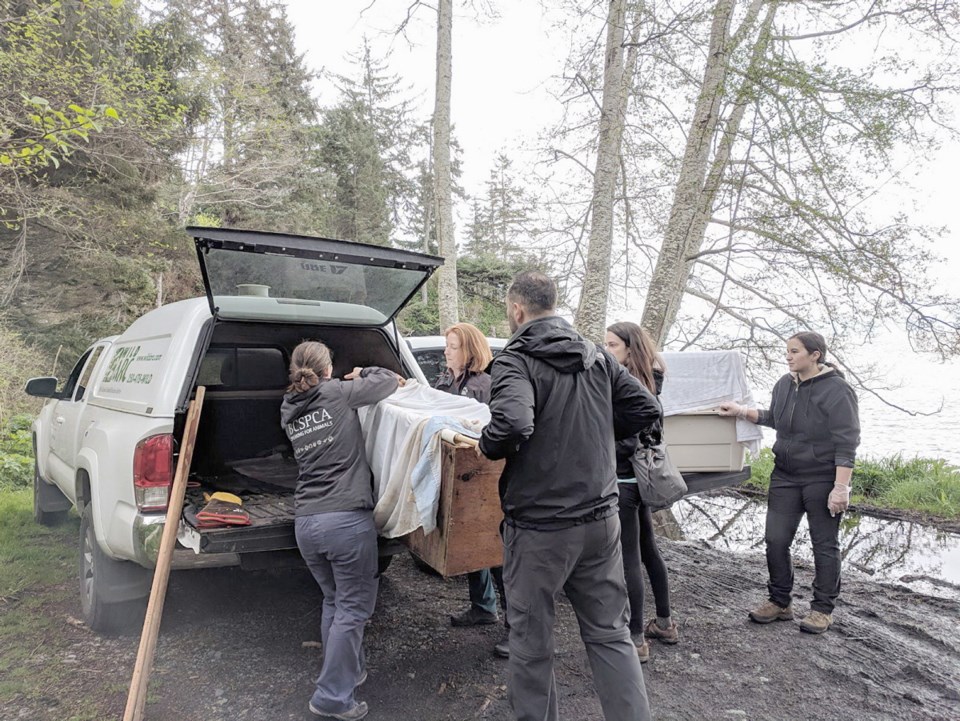A trio of orphaned river otters were released Wednesday onto a remote beach near Shirley after a year of specialized care.
The pups, named Lady, Cowby and Piers, were found between May and June 2017 and released as a family on a remote oceanside beach, north of Sooke, near a fresh-water creek and forest.
“It’s a difficult thing to see them go and it’s a little bit sad, but it is also extremely rewarding; this is what we’ve been working for,” said Andrea Wallace, manager of B.C. SPCA’s Wild Animal Rehabilitation Centre
The otters were named after places where they were found — Ladysmith, Cowichan Bay and Piers Island.
Lady, a female about two weeks old when found with its eyes still closed, was orphaned after her mom dropped her while being chased by a dog.
Cowby, a male about six weeks old, was found dehydrated, thin, and covered with more than 100 ticks. Piers, a male about six weeks old, was found alone and calling for his mother on Piers Island near Swartz Bay. The mothers of both males could not be located.
Marguerite Sans, Wild ARC’s senior wildlife rehabilitator, said a release is a happy day for staff and volunteers: “We know we’ve done everything we can to prepare them for the wild.”
The romp of otters underwent “extremely specialized care” that included an initial diet of formula that simulated a mother otter’s milk. Eventually, the pups progressed to eating about one kilogram of salmon, chicken or live fish each day.
While some of the fish and meat is donated, feeding the pups got expensive, Wallace said. The non-profit group collected about $17,000 in a special fundraiser to care for, feed and house the otters.
Beyond nursing the otters, Wild ARC’s goal was to limit human interaction, not wanting to habituate the otters to humans.
Workers tried to teach the pups skills to survive in the wild by hiding food in bins in a simulated shoreline or hanging it from trees to teach them to climb. There were no food dishes involved, said Wallace.
“We want them to be truly wild and not to get into trouble going up to people,” Wallace said.
The otters had access to a shallow and deep pool — about four feet at its deepest for diving.
In the wild, the otters might face predators such as bears, cougars and wolves.
Beyond Wild ARC’s natural setting in rural Metchosin that provides the sights and sounds of nature “it’s very difficult to train a wild animal on predators when we don’t have predators here,” said Wallace.
Still, the otters are expected to do well as they are “quite flighty,” said Wallace, referring to their tendency to run as part of their fight-or-flight mechanism.
The river otters were implanted with microchips, similar to the ones on other animals released into the wild by Wild ARC. The animals aren’t tracked but if they are found dead, sick or injured they can be scanned and identified.
“I guess the good news is that we have had success raising and releasing otters in the past, none of them have come back to us,” Wallace said.



